For centuries, medicinal mushrooms have been used in the treatment and prevention of a wide range of medical conditions. Several studies have illustrated the versatility of mushrooms and their roles in reducing inflammation, improving immune function, lowering risks of cancer, diabetes, heart disease, and improving overall well-being. Traditionally, we associate the use of mushrooms with brain health, immune regulation, and as an adjunct to cancer treatment. However, with the increasing prevalence of inflammatory bowel disease (IBD) and many other digestive conditions, research is branching out to alternative options; one of those being medicinal mushrooms.
Medicinal Mushrooms for Inflammatory Bowel Disease (IBD)
Inflammatory bowel disease is a chronic inflammatory disease that affects the gastrointestinal tract [1]. The incidence of IBD seems to be increasing each year and a large part of this may be due to the increased number of individuals taking charge of their own health, listening to their bodies, and acknowledging that something is not right. It is a very difficult condition that can severely affect quality of life and result in multiple complications, such as intestinal perforation or cancer [1]. In addition to the digestive disturbances IBD can cause, many individuals may also suffer from arthritis, or even eye and skin manifestations [1].
The pharmaceuticals that are traditionally used to treat people with IBD tend to come with many side effects and most patients must trial various medications before landing on one that betters their quality of life, if even a little [1]. Nature-derived polysaccharides are becoming an increasingly popular target of research to treat IBD and other conditions of the gut. Polysaccharides are a type of carbohydrate present in many plants or fungi, including the medicinal mushrooms we will be discussing in this article.
Research suggests that polysaccharides can regulate oxidative stress, inflammation, the gut microbiome, and the immune system, all of which can negatively affect gut health. Furthermore, it was found that polysaccharides may even protect the barrier function of the intestinal epithelium, which often becomes disrupted with certain gastrointestinal conditions [1]. Medicinal mushrooms tend to be FULL of polysaccharides and extracts of certain ones have shown beneficial effects in gut health!
Reishi Is Full Of Polysaccharides to Benefit Gut Health

Ganoderma lucidum, commonly known as Reishi mushroom, is often considered the go-to mushroom for those times where you really need to chill out. However, because one of the main components in Reishi are polysaccharides, it has been a point of interest in the study of alternative options for improvement of gut health.
One study found that a polysaccharide in Reishi was able to regulate the intestinal microbiota by acting as a prebiotic and reducing levels of pathogenic bacteria [2]. Balance of our gut microbiome is important for many cellular processes, such as absorption of nutrients, lipid metabolism, fermentation, mucosal immunity, and even maturation of our immune systems. When we have an imbalance, it may cause nutritional deficiencies, diarrhea, constipation, digestive discomfort, bacterial overgrowth, the list goes on. There may even be a correlation between our gut health and our mental health. In addition to the previously mentioned benefits of Reishi, the same polysaccharide was able to regulate the expression of inflammatory markers and result in a reduction of inflammation, improved immune system function, and decreased colon cancer risk [2].
Lion's Mane the Brain Mushroom

Another mushroom with potential in improving gut health is the brain mushroom, also known as Lion’s Mane. The benefits of Lion’s Mane became popularized for its neuroprotective and neurotrophic effects, but it also contains some powerful polysaccharides for gut health. One study was able to isolate the polysaccharide, HECP, from the mushroom and found that its use was able to improve oxidative damage and suppress development of inflammation by inhibiting inflammatory markers, such as COX-2 [3].
This research suggests that Lion’s Mane may act similarly to a group of non-steroidal anti-inflammatory drugs (NSAIDs) called COX-2 inhibitors [3]. The treatment group expressed decreased levels and expression of pro-inflammatory markers in the body, illustrating that Lion’s Mane may work in the treatment of colitis and reduce inflammation of the gut [3]. Moreover, the HECP polysaccharide illustrated the ability to regulate gut microbiota and treat dysbiosis (imbalance of gut bacteria) by elevating levels of favourable bacterial species and decreasing pathogenic ones [3].
Lion’s Mane has also been found to contain constituents which are inhibitory to H. pylori development, one of the most common causes of gastric ulcers [4]. Additionally, another study found that Lion’s Mane was superior to acid-lowering drugs at preventing alcohol-induced stomach ulcers, with zero negative side effects [5].
Chaga the Antioxidant Powerhouse

With its strong antioxidant abilities, the benefits of chaga hold the power to play a role in the treatment or prevention of many medical conditions. A study was done assessing Chaga’s ability to treat colitis (inflammation of the intestines) and found that the treatment group exhibited lessened symptoms of intestinal inflammation and reduced mucosal damage caused by the inflammation [6]. The study found that Chaga was able to do this by upregulating expression of Treg and Th2 immune cells and downregulating Th17 and Th1 in the colon tissue, spleen, and mesenteric lymph nodes [6]. Regulatory T cells play a role in immune homeostasis, and it has been found previously that defects in the number and suppressive function of T cells may be seen in IBD. Thus, regulation of them, as seen with the use of Chaga, may potentially target the underlying pathogenesis of inflammatory bowel conditions.
Another potential cause of IBD may be oxidative stress [7]. Oxidative stress is often due to an imbalance between free radical concentrations and antioxidants. When free radicals overpower our antioxidant systems, cellular damage may occur. And, of course, stress has very negative impacts on our gastrointestinal tracts, much like our whole bodies, and may impair proper functioning and lead to gut dysbiosis, nutrient deficiencies, and overall discomfort. With consideration that Chaga is a powerful antioxidant mushroom, its use may prevent the development of oxidative stress in the body.
Turkey Tail Used As Prebiotic
Turkey Tail, or Trametes versicolor, has been studied to act in a way similar to prebiotics. Prebiotics do not contain live bacteria like probiotics, but they help beneficial bacteria in the gut to grow. Common prebiotics are often any sources of fiber or complex carbohydrates. This study isolated a polysaccharopeptide from Turkey Tail and found that it acted as a prebiotic and exerted beneficial effects on the intestinal microbiome [8].
Gut health is essential to overall health. Proper development of a strong microbiome in the gut is needed for a wide variety of mechanisms: for normal gastrointestinal function, to protection against infections, to improve nutritional status, to bind and excrete waste products from the body, to maintain balance of our hormone levels, for our mood and neurological health, for blood sugar control, for oral health, and for systemic inflammation in the body. The influences of our microbiome to our entire body are vital to our overall well-being, so additional support from mushroom supplements could be the game changer in your health.
By Silvana Jakupovic — BSc and 4th Year Student of Naturopathic Medicine (CCNM-Boucher)
References:
[1] Li C, Wu G, Zhao H, Dong N, Wu B, Chen Y, Lu Q. Natural-Derived Polysaccharides From Plants, Mushrooms, and Seaweeds for the Treatment of Inflammatory Bowel Disease. Front Pharmacol. 2021 Apr 26;12:651813. doi: 10.3389/fphar.2021.651813. PMID: 33981232; PMCID: PMC8108135.
[2] Xie, J. L., Liu, Y. X., Chen, B. H., Zhang, G. W., Ou, S. Y., Luo, J. M., et al. (2019). Ganoderma lucidum polysaccharide improves rat DSS-induced colitis by altering cecal microbiota and gene expression of colonic epithelial cells. Food Nutr. Res. 63, 1559. doi:10.29219/fnr.v63.1559
[3] Ren, Y. L., Geng, Y., Du, Y., Li, W., Lu, Z. M., Xu, H. Y., et al. (2018). Polysaccharide of Hericeum erinaceus attenuates colitis in C57BL/6 mice via regulation of oxidative stress, inflammation-related signaling pathways and modulating the composition of the gut microbiota. J. Nutr. Biochem. 57, 67-76. doi:10.1016/j.jnutbio.2018.03.005
[4] Shang X, Tan Q, Liu R, Yu K, Li P, Zhao GP. In vitro anti-Helicobacter pylori effects of medicinal mushroom extracts, with special emphasis on the Lion's Mane mushroom, Hericium erinaceus (higher Basidiomycetes). Int J Med Mushrooms. 2013;15(2):165-74. doi: 10.1615/intjmedmushr.v15.i2.50. PMID: 23557368.
[5] Wong JY, Abdulla MA, Raman J, Phan CW, Kuppusamy UR, Golbabapour S, Sabaratnam V. Gastroprotective Effects of Lion's Mane Mushroom Hericium erinaceus (Bull.:Fr.) Pers. (Aphyllophoromycetideae) Extract against Ethanol-Induced Ulcer in Rats. Evid Based Complement Alternat Med. 2013;2013:492976. doi: 10.1155/2013/492976. Epub 2013 Nov 5. PMID: 24302966; PMCID: PMC3835629.
[6] Chen, Y. F., Zheng, J. J., Qu, C., Xiao, Y., Li, F. F., Jin, Q. X., et al. (2019). Inonotus obliquus polysaccharide ameliorates dextran sulphate sodium induced colitis involving modulation of Th1/Th2 and Th17/Treg balance. Artif. Cell Nanomedicine, Biotechnol.47 (1), 757–766. doi:10.1080/21691401.2019.1577877
[7] Najafzadeh M, Reynolds PD, Baumgartner A, Jerwood D, Anderson D. Chaga mushroom extract inhibits oxidative DNA damage in lymphocytes of patients with inflammatory bowel disease. Biofactors. 2007;31(3-4):191-200. doi: 10.1002/biof.5520310306. PMID: 18997282.
[8] Pallav K, Dowd SE, Villafuerte J, Yang X, Kabbani T, Hansen J, Dennis M, Leffler DA, Newburg DS, Kelly CP. Effects of polysaccharopeptide from Trametes versicolor and amoxicillin on the gut microbiome of healthy volunteers: a randomized clinical trial. Gut Microbes. 2014 Jul 1;5(4):458-67. doi: 10.4161/gmic.29558. Epub 2014 Jul 9. PMID: 25006989.



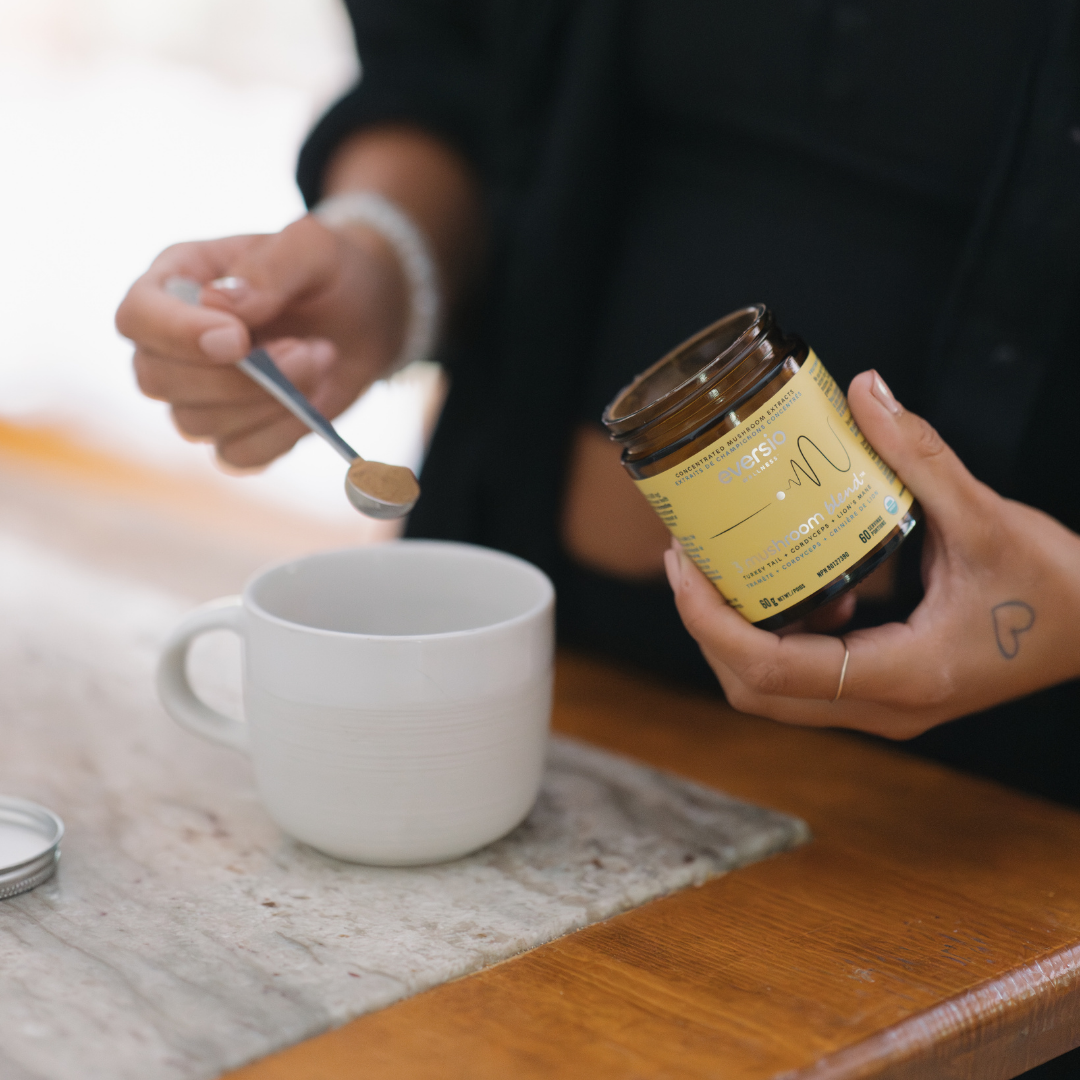

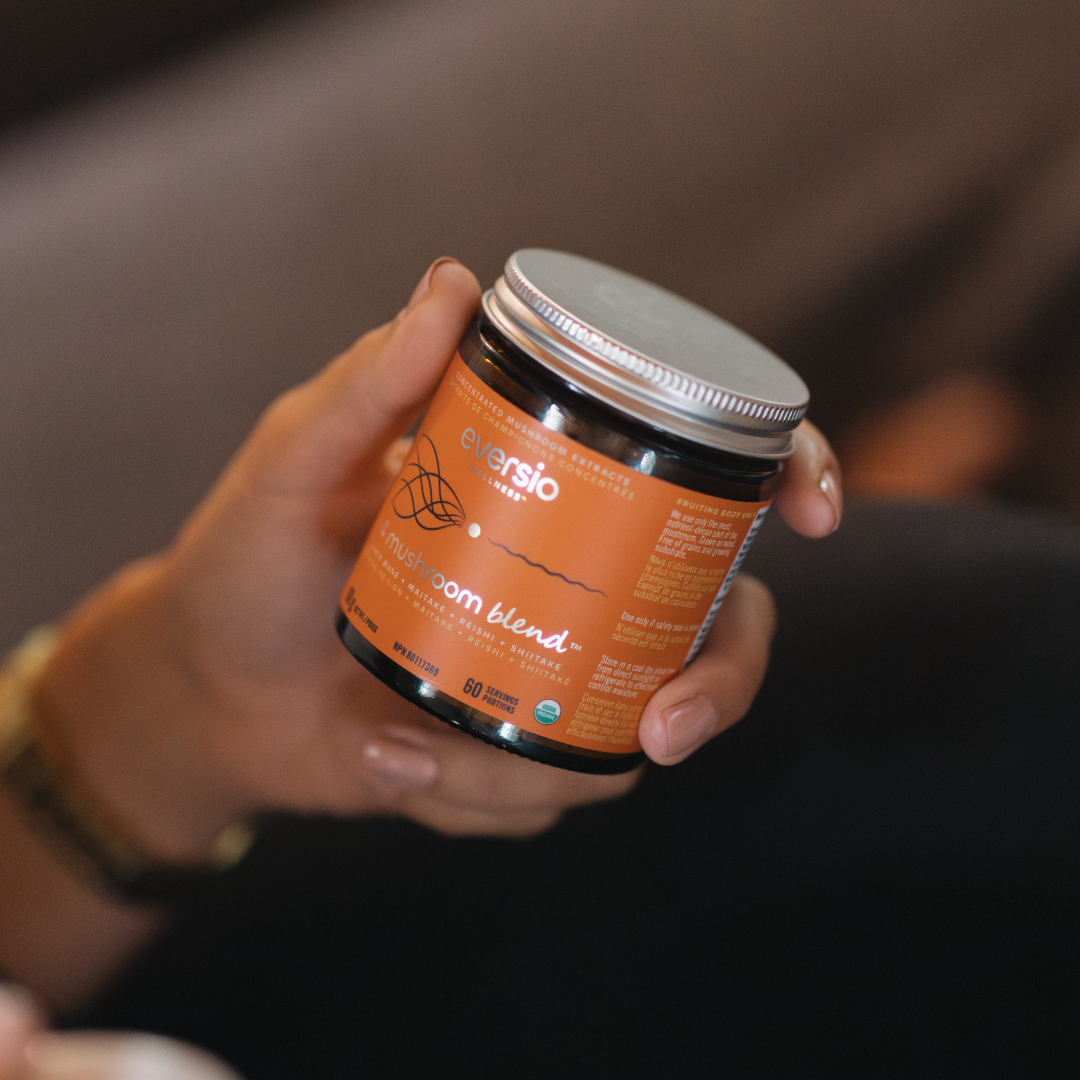

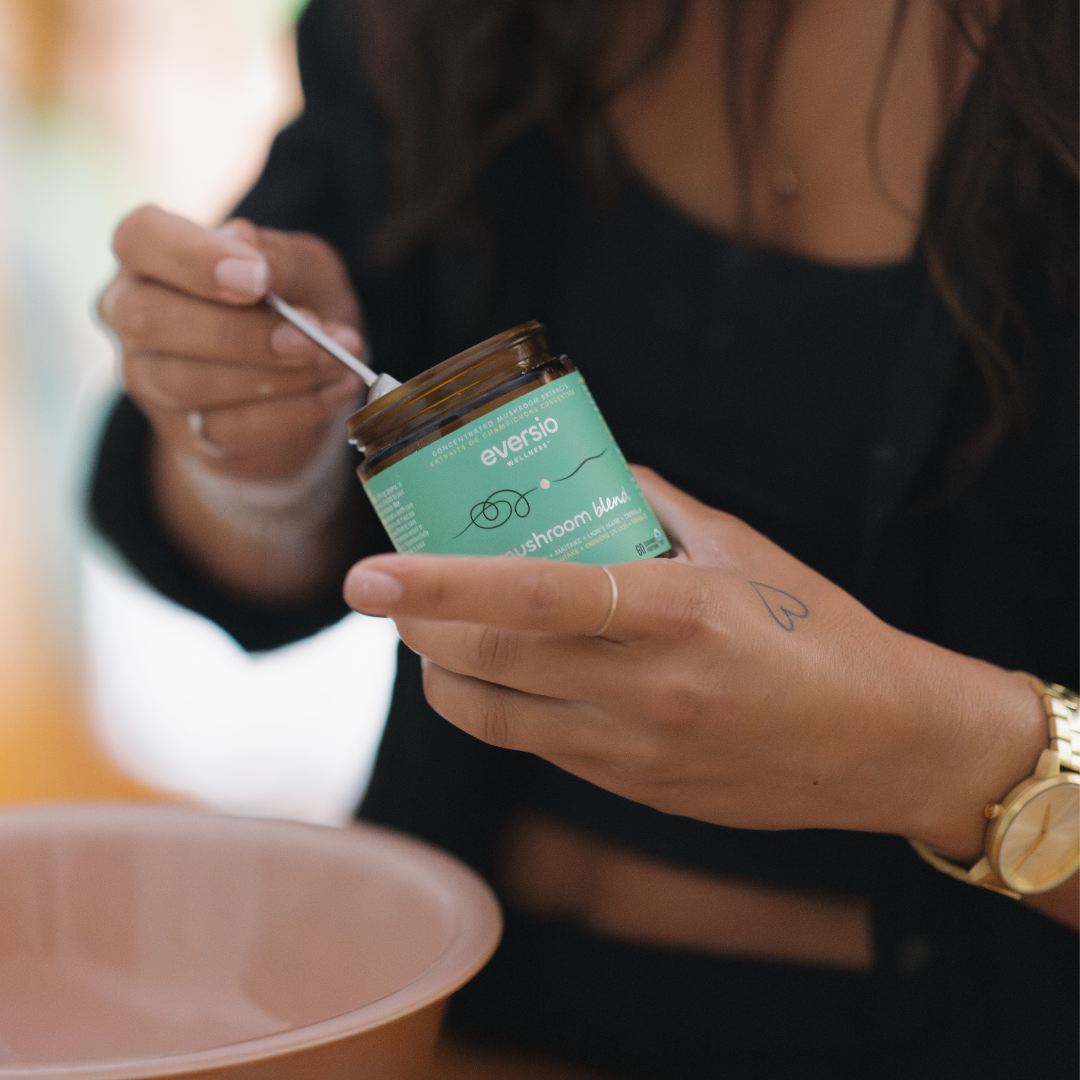

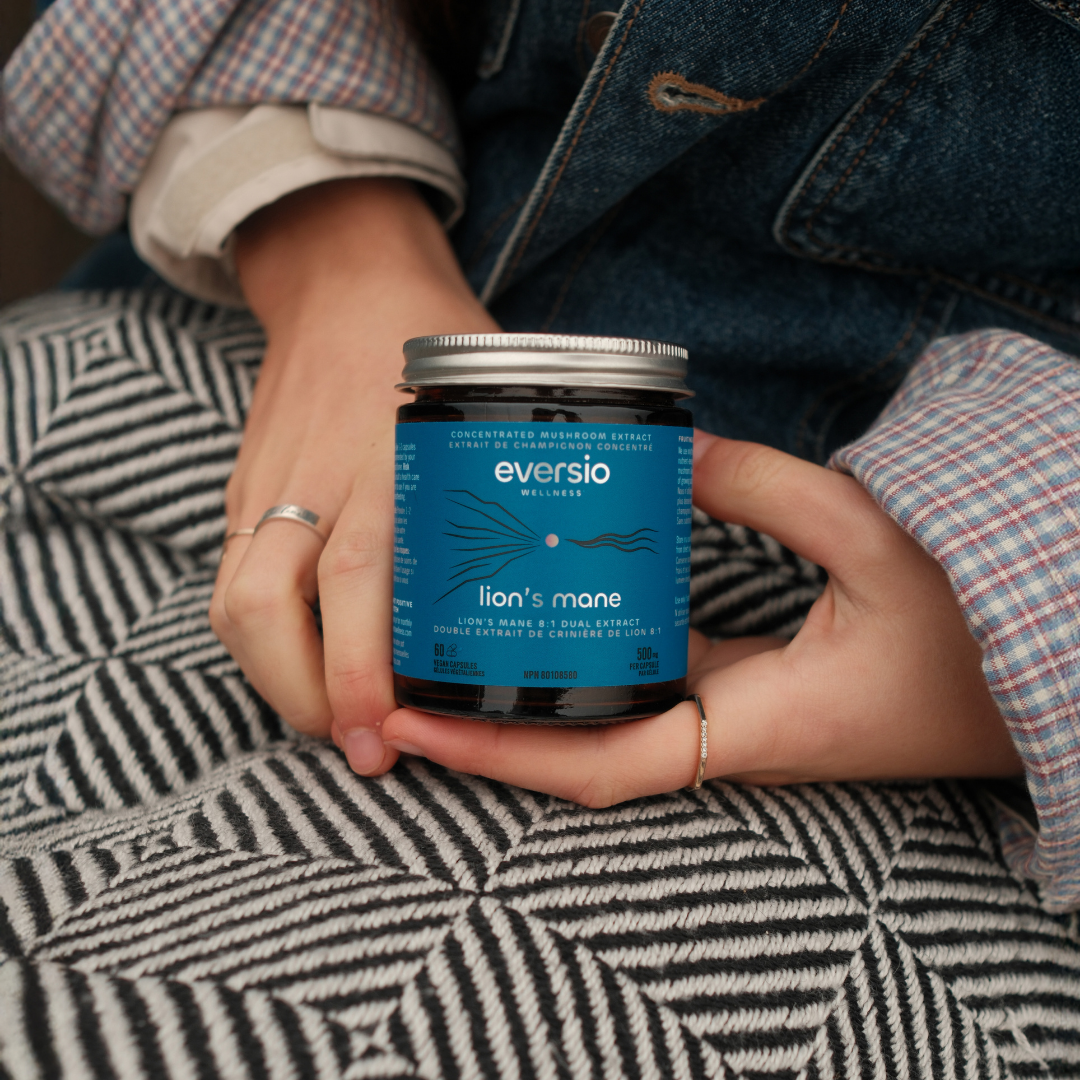


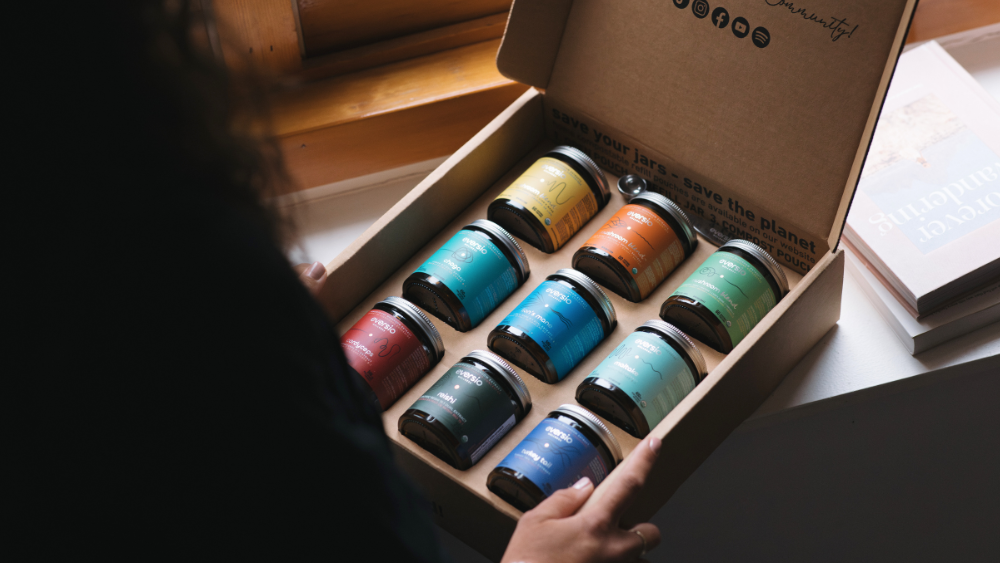







Leave a comment
All comments are moderated before being published.
This site is protected by hCaptcha and the hCaptcha Privacy Policy and Terms of Service apply.